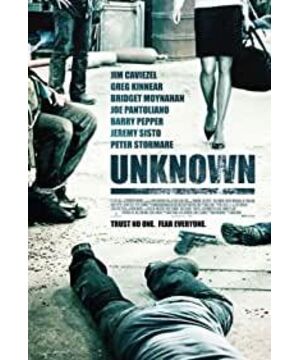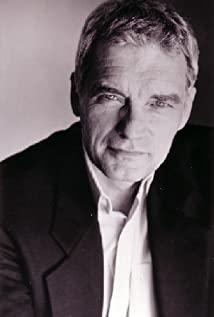The setting of the first half of the plot is also very good. The combination of the secret room and amnesia is very interesting, but the identities of each other are revealed too early in the process. As soon as Max remembered who he was, he told Coase, the robber who played Coase's face, I thought it must be Max's plan, he told one of the robbers: You are Coase, You have a family, we are a group, we have to fight together to escape. At this point, I think the story design is still good, but it turns out that Max didn't lie, he really remembered it, and Coase also remembered who he was, and also established an ambiguous relationship with one of the robbers (the male protagonist). Relationships, some disappointment, can obviously add some suspense, such as scams and lies and mutual suspicion, then this line will be very exciting. As for the line drama that the police chased outside the house, the design was normal, but it was just to save time and increase the drama in the secret room. If the ending is like this: they finally think they have confirmed their identity, when the police arrive and are about to break in, the people in the house are waiting for this moment, what identity they are, and whether they are waiting for redemption or judgment.
The ending in the movie is too conspiracy theory (the contrast between the previous wife and the ending is a bit big; the audience has just learned that the male protagonist is an undercover agent, and accepts his image as a good father and a good policeman, but it turns into him being the mastermind behind the scenes), giving people Feeling too deliberate. I think this story depends entirely on what the director wants to express, and I like it more: what kind of person does what kind of thing. The setting for the male protagonist to be an undercover is very good, and the feeling is very important. He feels that the kidnapped person is the righteous side. Even if he loses his memory and is the identity of the kidnapper, he can still maintain this sense of justice. . The character who is compared with him is Max. He gives the impression that he is a bit both righteous and evil. At the beginning, you can feel that he must have been kidnapped because of two details: 1. He was the first to read the newspaper , from a cultural level. . (Coase was the second one to read the newspaper) 2 Everyone had a flashback of his memory the first time he went to the mirror, and from that flashback it could be seen that he was passive. I feel like it would have been better if Mackwan was an insider who pretended to be kidnapped when he was actually with the kidnappers. Because even though he and Coase said that he remembered it, Coase didn't think of him. From his heart, Coase didn't trust him. The sense of distrust he gives can just be released through his identity setting as an inner ghost.
Of course, the director wanted to express another meaning: the exact opposite of "what people do", the loss of memory makes the male protagonist mistakenly think that he is really a good person. This design is also good, but the deliberately added scenes at the end are very strange and abrupt, not as good as the previous ones. At the end, when Coase's wife looked at the male protagonist, it would be good to have a strange look, leaving a suspense for the male protagonist to remember. Why did the woman look at him, but as if he knew why, he closed his eyes.
A little thought from the movie: Can your memory tell you who you are? Who you are should be judged by what you do, your face can't tell you who you are because of "Face Change", your memory can't tell you who you are, because it's very likely to be tampered with. So I think the most ideal ending is also the idea that this theme can finally achieve: the so-called memory is what you do under the circumstance that does not matter the time and place!
View more about Unknown reviews











